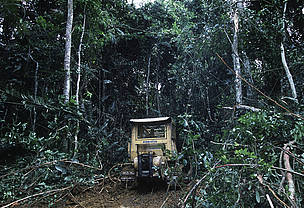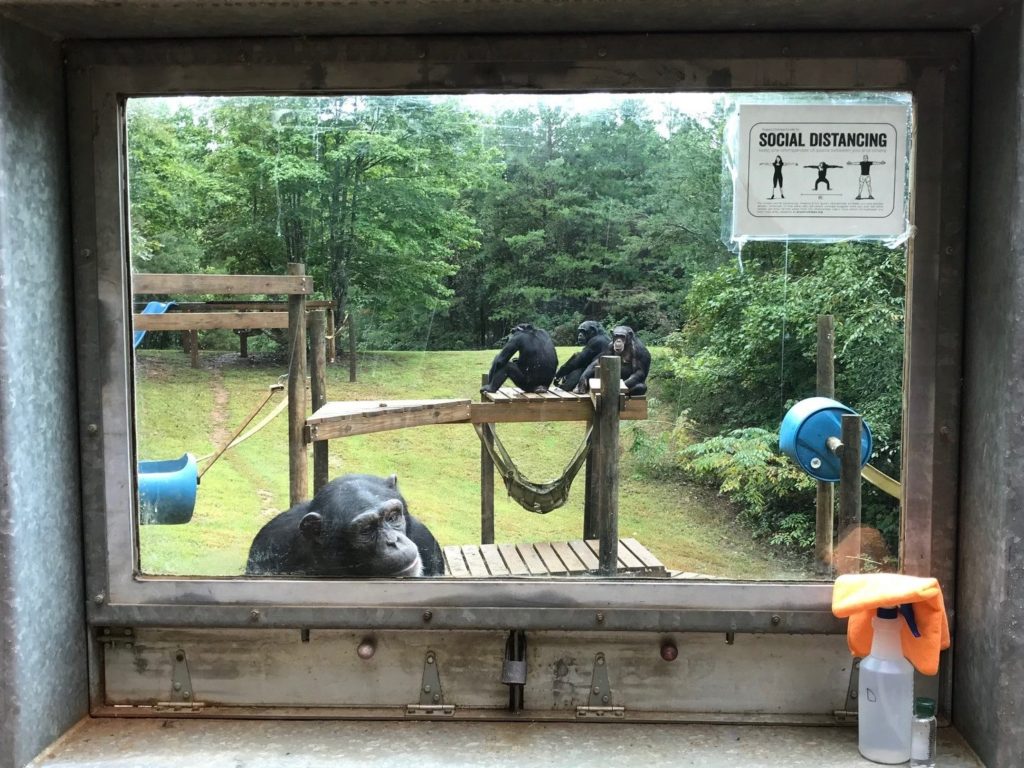
Learn about chimpanzee conservation

Chimpanzee populations are now under more distress than ever before. A population that once totaled more than 1 million now teeters around 200,000.

What impacts wild chimps?
Habitat destruction due to logging, agriculture, and mining as well as the illegal pet trade, bushmeat, and exposure to diseases have all greatly affected wild chimpanzee populations. Logging, agriculture and mining destroy the very trees that chimpanzees nest in at night and call home. They additionally destroy food sources and create divides and separation between chimp populations by building roads and eliminating any chance chimpanzee families have to interact with surrounding communities.
Weakening of the overall health of the wild population of chimpanzees causes diseases to spread rampantly, which results in detrimental conditions for the chimps.
Saving chimpanzees
Conservation efforts for chimpanzees began in 1990 when they were declared an endangered species. During this process, a distinction was made between wild and captive chimpanzees.
Even though there are absolutely no differences between wild and captive chimps, the separation allowed chimps to legally be kept in captivity and for medical research on chimpanzees to continue. Despite conservation efforts, little has improved in the lives of wild chimps in the past 30 years. When all else fails we look to current and upcoming generations for hope and help. Through education, we can and will influence the younger generations to make good decisions for the environment and to place conservation at the forefront of the conversation.
Chimpanzees hold a prominent place in our hearts here at Project Chimps and we want to share our love of chimps with our community!
Get involved!
Join us Saturdays at 10am in January as we explore a 5-week Children’s Reading Series about Chimpanzees! We will get to know chimpanzees through books, and you never know - maybe we will plant a seed in the young mind of a future conservationist!

You can sign up for the reading series using the links found on this page.
Do you want to learn more about Chimpanzee Conservation? Send us an email and set up a Zoom Virtual Field Trip for your class or group.

Want to play a part at home in helping wild chimps?
- Avoid Palm Oil. Check ingredients and make smart decisions to purchase items made without palm oil. Palm oil plantations have been horribly destructive to both chimpanzee and orangutan populations.
- Coltan is a heavy metal mined in areas where wild chimpanzees live. Can you make that cell phone last just a little bit longer? Maybe you don’t need the newest version!
- Recycle your old electronics and buy used when possible. By living a life of sustainability, we help to decrease the demand for products that ultimately harm animals and the environment.
- Do not support baby animal photo opportunities. Be respectful of the animals and choose not to support those using baby wild animals for photo ops.
- Do the research! Choose reputable ecotourism companies when you travel.
- Help plant trees or pollinator flowers in your area! We can all make a difference in conservation of the environment by planting for the birds, butterflies, and bees!
- Pick up trash and organize a local wildlife area clean up. Don’t ever underestimate the difference just a few can make! Start small. Every bit makes a difference in the long run!
- Inspire the next generation!
